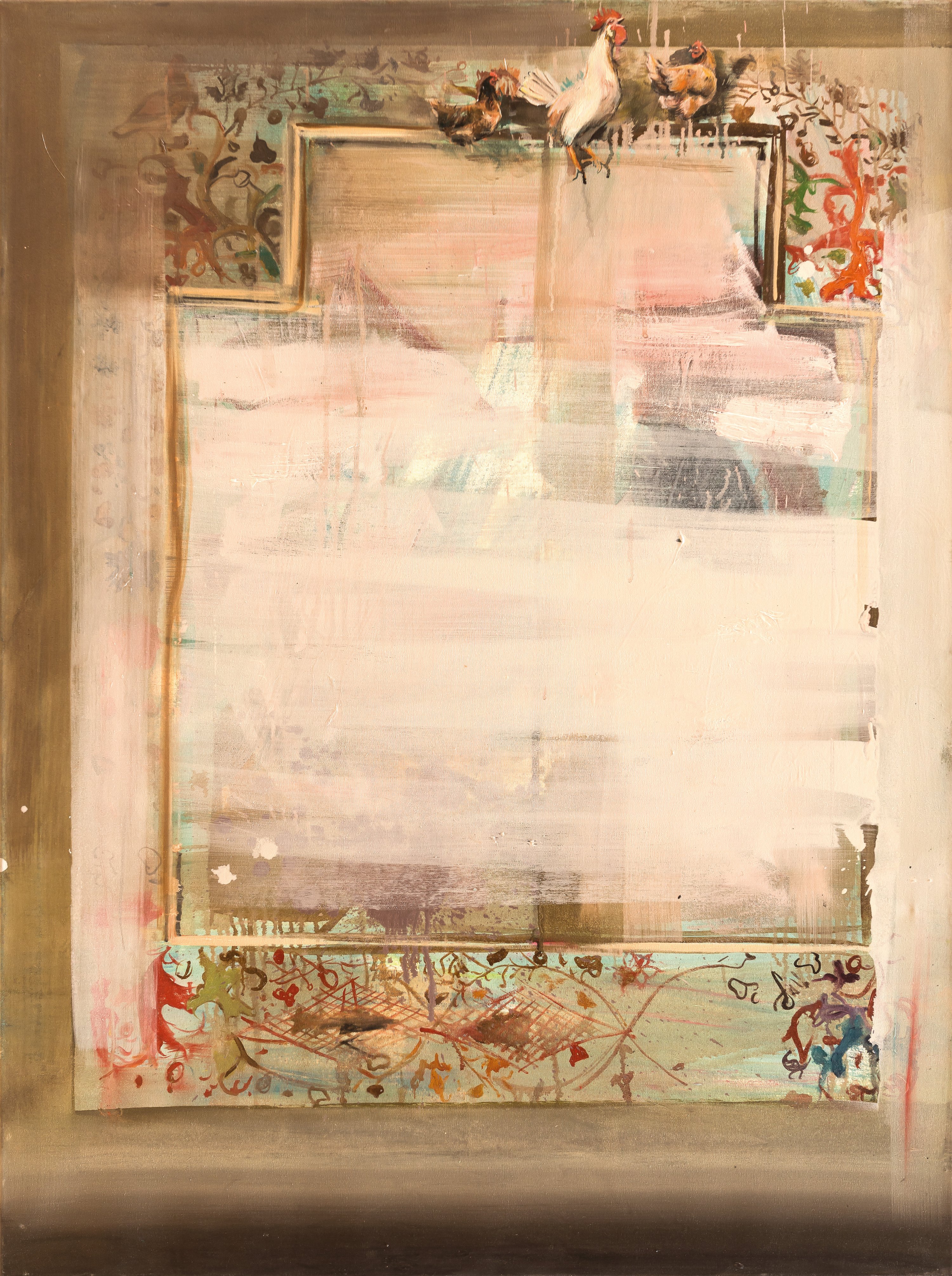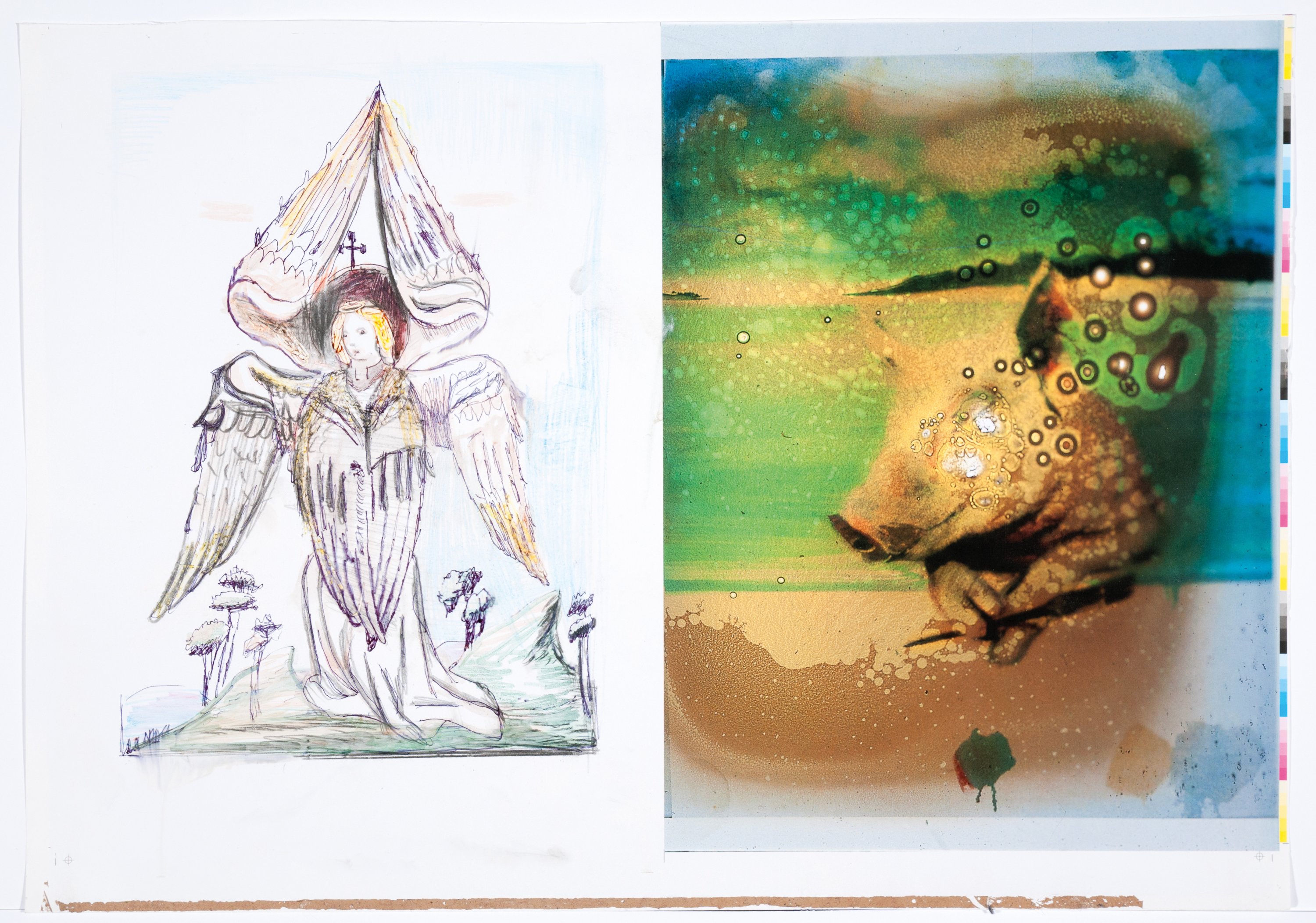Radek Szlaga
b. 1979, Gliwice
Painter, creator of installations and objects. A graduate of the Academy of Fine Arts in Poznań, he co-founded the group Penerstwo. His work is a collection of musings on the image of the contemporary world, a place where notions and culture merge. Raised in two realities—Polish and American—he confronts the hopes of early Polish capitalism with the apocalyptic vision of a fallen American city. His characters are both real and fictitious, often as not socially marginalised, such as residents of rural areas or black people. He is inspired by literature and cinematography, but also by the internet and art history. Nominated for the Polityka Passport Award (2012). He lives and works in Detroit and Brussels.
They Fouled
FSP ING 0117
While issues of painting remain the theme of many works by Radek Szlaga, rarely are they explored in a form as direct as in They Fouled. The interior of the decorative ornament—traditionally left to the content proper—has been filled with the colour white superimposed on the painting’s underlying layers, the tabula rasa of any painter, a suggestion of untouched canvas. Hens represent folk culture, unaffected by the overproduction of meanings and needs of contemporary times. This particular element of the painting may also refer to the movement of animalistic renditions, quite frequent in Szlaga’s oeuvre. Reflection on painting and the cultural roots of the medium interweaves with art history textbook motifs.
Angel/Pig
FSP ING 0118
Radek Szlaga blends and combines assorted techniques and aesthetics. Cacophony and self-reference have become his trademark: he uses photographic prints of his own paintings to add new elements, scan them, and convert them into slides. In this piece from the Foundation’s collection, a flawed photographic print of a pig, a figure used by the artist in assorted pieces multiple times, appears next to an angel copied from a book on old prints. In joining the two motives, Szlaga offers a juxtaposition of contemporary and old art, of high and low cultural forms.

